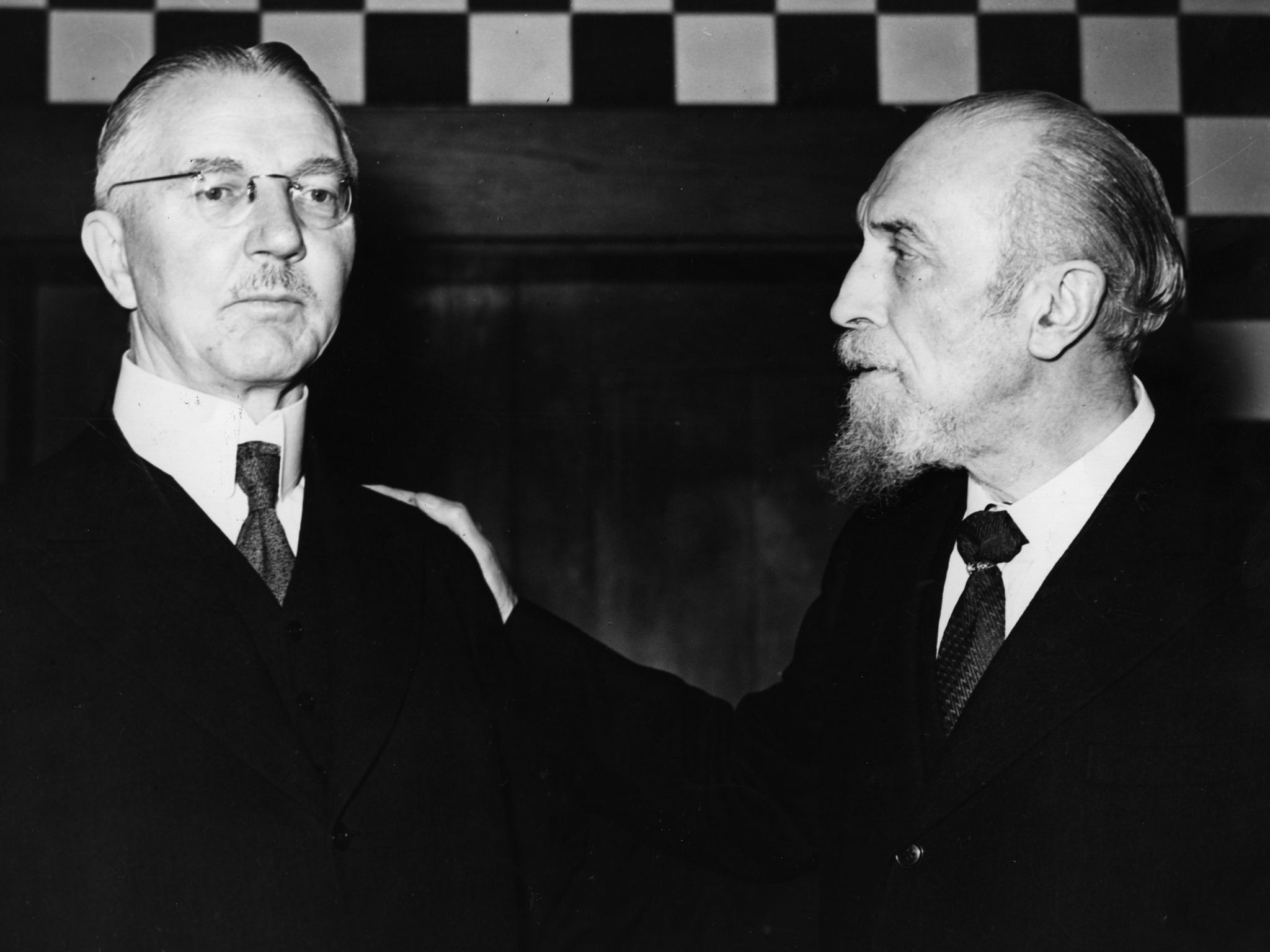Documents reveal Bank of England sold stolen gold for Nazis
Archived material details how gold bars plundered from Czechoslovakia were sold on behalf of Germany's central bank in 1939

Your support helps us to tell the story
From reproductive rights to climate change to Big Tech, The Independent is on the ground when the story is developing. Whether it's investigating the financials of Elon Musk's pro-Trump PAC or producing our latest documentary, 'The A Word', which shines a light on the American women fighting for reproductive rights, we know how important it is to parse out the facts from the messaging.
At such a critical moment in US history, we need reporters on the ground. Your donation allows us to keep sending journalists to speak to both sides of the story.
The Independent is trusted by Americans across the entire political spectrum. And unlike many other quality news outlets, we choose not to lock Americans out of our reporting and analysis with paywalls. We believe quality journalism should be available to everyone, paid for by those who can afford it.
Your support makes all the difference.The Bank of England's involvement in the sale of gold stolen by Nazis following the invasion of Czechoslovakia has been revealed in newly released documents.
Archived material released by the BoE details how the gold bars were sold on behalf of Germany's central bank, the Reichsbank, in 1939, after being seized during the Nazi invasion, despite the fact that British government had frozen all Czech assets being held in London at the time.
The BoE documents have been made public following the first stage of the digitalisation of the bank's archive.
In the report written in 1950, the BoE admit that at the outbreak of the Second World War “and for some time afterwards” the incident involving the Czech gold “still rankled”.
Officials wrote: “Outside the Bank and the Government the Bank's position has probably never been thoroughly appreciated and their action at the time was widely misunderstood.”
They describe how a request was made in March 1939 to transfer gold worth £5.6m, which would translate to approximately over £700m today, from a Czech National Bank account at the Bank for International Settlements (BIS) to a Reichsbank account they also held. Some £4m of the gold went to banks in Belgium and Holland, with the rest sold in London.
The BoE documents, published for the first time on Tuesday, reveal that Sir John Simon, the then chancellor, had questioned the governor of the bank, Montagu Norman, over whether they were holding any of the Czech gold in May 1939.
The report continued: “The Governor in his reply (30th May) did not answer the question, but pointed out that the Bank held gold from time to time for the BIS and had no knowledge whether it was their own property or that of their customers. Hence, they could not say whether the gold was held for the National Bank of Czechoslovakia.”
Despite concerns from Sir John being raised, a further transaction was made that June. On that occasion, there were sales of gold to the value of £440,000 and a £420,000 shipment to New York.
This represented "gold which had been shipped to London by the Reichsbank", according to the report on the BoE's website. "This time, before acting, the Bank of England referred the matter to the Chancellor, who said that he would like the opinion of the Law Officers of the Crown.
“On the BIS enquiring, however, what was causing delay and saying that inconvenience would be caused because of payments the next day, the Bank of England acted on the instructions without referring to the Law Officers, who, however subsequently upheld their action.”
Join our commenting forum
Join thought-provoking conversations, follow other Independent readers and see their replies
Comments